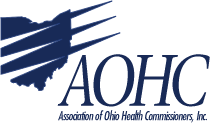Complete Story
01/31/2022
News from Washington: Senators Murray and Burr Introduce Pandemic Preparedness Bill
The bipartisan leaders of the Senate Health, Education, Labor and Pensions (HELP) Committee, Sens. Patty Murray (D-WA) and Richard Burr (R-NC), released draft legislation, the Prepare for and Respond to Existing Viruses, Emerging New Threats, and (PREVENT) Pandemics Act. The draft bill aims to strengthen the nation’s public health and medical preparedness and response systems.
The PREVENT Pandemics Act includes a major NACCHO priority: a public health workforce loan repayment program to help improve recruitment and retention of vital public health staff. Under the bill, the Health Resources and Services Administration would offer up to $50,000 annually in loan repayment to eligible public health professionals in exchange for a three-year commitment to a local, state, or Tribal health department. The inclusion of the public health loan repayment program in the PREVENT Pandemics Act comes after standalone legislation, the Strengthening the Public Health Workforce Act (S. 3506), was reintroduced in the Senate earlier this month.
Other notable provisions of the PREVENT Pandemics Act include:
- Requiring Senate confirmation of the Director of the Centers for Disease Control and Prevention (CDC)
- Establishing a Task Force to examine and assess the United States’ preparedness for and response to the COVID-19 pandemic at the Federal, state, and local level to identify gaps and make recommendations
- Reauthorizing a network of Centers for Public Health Preparedness and Response
- Authorizing a grant program to support projects to reduce health disparities and improve health outcomes by increasing capacity to address social determinants of health within communities.
- Authorizing changes to public health data and biosurveillance capabilities
- Modernizing the medical countermeasures supply chain and improving transparency of the Strategic National Stockpile
A section-by-section summary of the legislation is available from the HELP Committee. Senators Murray and Burr are continuing to work with their colleagues on the legislation and are welcoming feedback on the draft bill. NACCHO will provide comments and include those in future News from Washington.
NNPHI Communities Of Practice
Join one of NNPHI's online Communities of Practice to connect and share tools with public health and multi-sector professionals from around the country.
- COVID-19 Learning and Action Collaborative
- NNPHI Member Institute COVID-19 Community
- Public Health Performance Improvement Network (phPIN)
Resources and Reports
REPORT: IMPROVING DATA ON RACE AND ETHNICITY: A ROADMAP TO MEASURE AND ADVANCE HEALTH EQUITY
Achieving health equity begins with an ability to identify health disparities and their causes. To do that, we must have complete and accurate data on race, ethnicity, and other drivers of health. To identify the barriers and opportunities, Grantmakers In Health, in collaboration with the National Committee for Quality Assurance, interviewed a variety of stakeholders across the country, representing all levels of the health system. The second of two reports, Improving Data on Race and Ethnicity: A Roadmap to Measure and Advance Health Equity, builds on an earlier report, Federal Action Is Needed to Improve Race and Ethnicity Data in Health Programs, by providing more details about race and ethnicity data collection in federally administered health programs and an expanded list of recommendations for improving the data. The recommendations consider actions for states and the private sector as well as actions for the federal government. Access the report here.
REPORT: 2021 UPDATE: COVID-19 AND THE PIVOT TO TELEHEALTH
Since Seven Directions' 2019 Environmental Scan of Tribal Opioid Overdose Prevention Responses, tribal and urban Indian communities have been significantly impacted by the collision of the ongoing opioid crisis and the COVID-19 pandemic. This brief updates the Environmental Scan (2019) and the Models of Tribal Promising Practices brief (2020) with COVID-19-induced and telehealth-specific programmatic pivoting for opioid use disorder (OUD) services that many tribes, tribal programs, tribal epidemiology centers urban Indian health programs undertook in 2020 and 2021. Access the report here.


